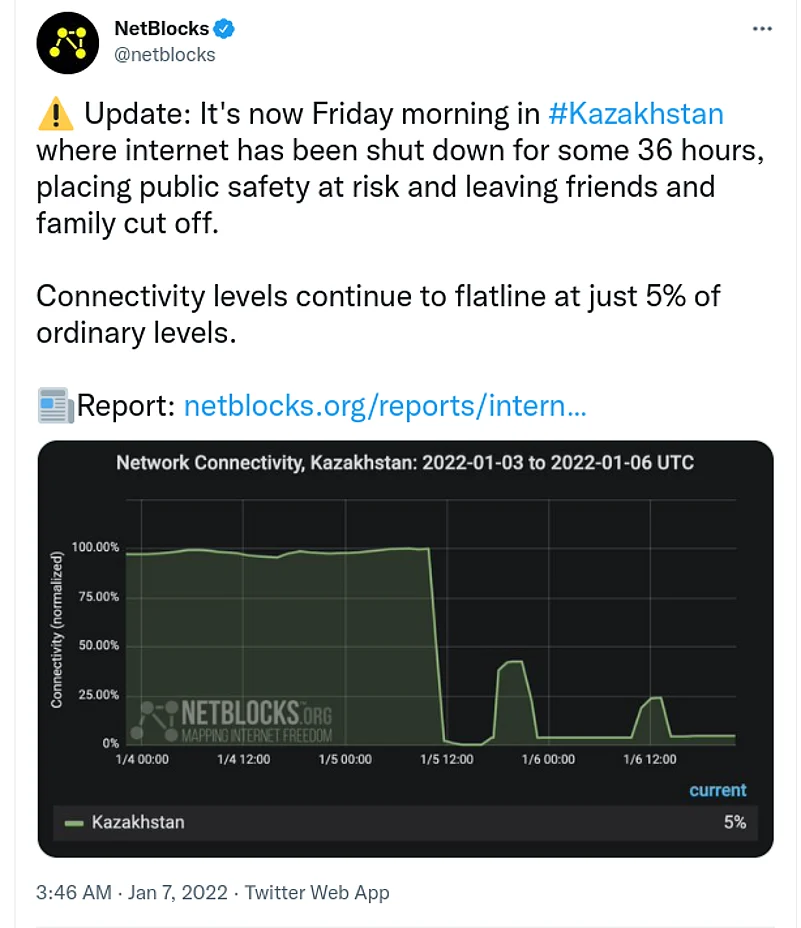The political crisis that has gripped Kazakhstan, which recently became a hub for crypto miners, has had a ripple effect on the global cryptocurrency market. According to a recent report by Reuters, crypto miners are facing challenges in Kazakhstan due to the ongoing protest situation.
With the Kazakhstan government imposing a total ban on internet services due to nationwide protests and violent clashes against rising fuel prices, crypto mining activities have suddenly come to a standstill. Crypto mining takes up a lot of computational processing power and thereby puts additional load on a country’s electricity grid.
Kazakhstan’s Role In Crypto Mining
According to a recent report by Coindesk, Bitcoin’s (BTC) hash rate surged to an all-time high of 207 exahash per second sometime in December 2021. Hash rate is a term that is used to define the amount of computational processing power needed to mine a new token of any specified cryptocurrency.
Bitcoin’s hash rate was at a low of 61 exahash per second back in July 2021 when China banned illegal crypto mining. The spectacular recovery of Bitcoin's hash rate from 61 to 207 in December was possible largely because miners shifted base from China to Kazakhstan, Iran and the US, reported Coindesk.
Therefore, the disruption in Kazakhstan is now affecting the global crypto market.

What’s Happening In Kazakhstan?
The electricity in Kazakhstan is mainly generated using natural gas and oil . But crypto mining activities are still done using older coal power plants, which are cheap but extremely polluting for the environment.
According to the Cambridge Bitcoin Electricity Consumption Index, miners in Kazakhstan were alone responsible for 18.1 per cent of the total contribution in hash rate of Bitcoin blockchain. The US is the world’s leading country in Bitcoin blockchain’s hash rate contribution at 35.4 per cent.
But these numbers have come down significantly as the Kazakh government recently imposed a nationwide complete ban on Internet services for more than 36 hours now.
As a result of this ban, the Bitcoin mining industry, which is worth billions, suffered heavily. The Internet blackout started from January 5. Citizens were contesting basic human rights violations by the government and since Wednesday several violent clashes in different parts of the country have been occurring.
When more miners are registered on the blockchain’s network, more computational processing power is needed to mine a new crypto token. Since miners in Kazakhstan have gone offline for the past three days, theoretically, it should now take less computational processing power for crypto miners in other parts of the world like the USA, Iran and Ireland to mine a new crypto token.


























